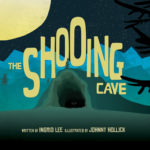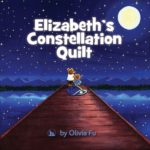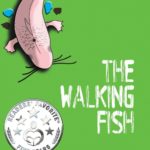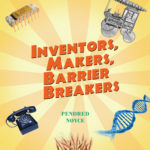Science for kids? Surely it begins at home. When kids grow up in science-friendly homes, they are encouraged to ask questions, think critically, experiment, explain their reasoning, read, write, and create models.
The National Association for the Education of Young Children (NAEYC) defines “early childhood” as occurring before the age of eight, and it is during this period that a child goes through the most rapid phase of growth and development. Their brains develop faster than at any other point in their lives. A kid’s education as the child is listening, playing, talking, and being read to at home.
Research shows that when parents play an active role, their children achieve greater success as learners, regardless of socioeconomic status, ethnic/racial background, or the parents’ own level of education (PTA 1999; Henderson and Mapp 2002; Pate and Andrews 2006). Furthermore, the more intensely parents are involved, the more confident and engaged their children are as learners and the more beneficial the effects on their achievement (Cotton and Wikelund 2001).
According to researchers the right early childhood science activities can
- Nurture your child’s natural sense of adventure and curiosity
- Help your child develop her own understanding of the natural world
- Encourage your child to be a persistent problem solver, and
- Introduce your child to basic elements of scientific reasoning (seeking evidence, testing predictions)
A lovely bedtime story about cave features and friendship. Read more
A beautiful and heart-warming story about a child’s love for a parent and a sense of wonderment about the stars. Read more
A humorous, exciting tale of an ordinary girl who makes an extraordinary scientific discovery—a blind fish that walks… Read more
What does it take to change the world? Read more
Good science books for kids are a great way to introduce science ideas and activities to your kid. They offer adventure, mystery and excitement. They can help students who have a love for reading develop a love for science, math and engineering as well. They can also help kids who love science become more eager and fluent readers.
The best science books for children can do a great deal to develop the dual love of science and reading. Such transformative science books for kids must be specifically written to offer accurate information, promote a positive worldview, build a child’s own sense of science identity, and embrace a child’s innate sense of wonder and fun. To this end, Tumblehome Books continually strives to seek new voices, new visions, and new approaches in children’s literature.
Every world-renowned scientist started life as a curious young child who thought big thoughts, asked big questions and explored their world in brave new ways. Tumblehome Books helps kids imagine themselves as young scientists or engineers and encourages them to experience science through exciting fiction and non-fiction science books for kids from ages seven to sixteen.
Called “a leading publisher of science books for children” by the Boston Globe, Tumblehome Books produce high quality supplemental educational materials, specifically focused on STEM (science, technology, engineering and mathematics).
Our science books for kids dive into topics ranging from animals to weather to outer space and so much more. There are biographies of important scientists to inspire young readers, and there are fictional stories where kids can see themselves in the characters and learn more about the scientific process. Our science books are curriculum-aligned to the latest U.S. standards including NGSS and Common Core. Yet, our science books are designed for the informal after-school learning environment. In other words, our books are both educational and fun!
Children learn in many different ways and the best science books for kids reflect that. Want your child to enjoy science? Explore all the exciting science books for kids here.












